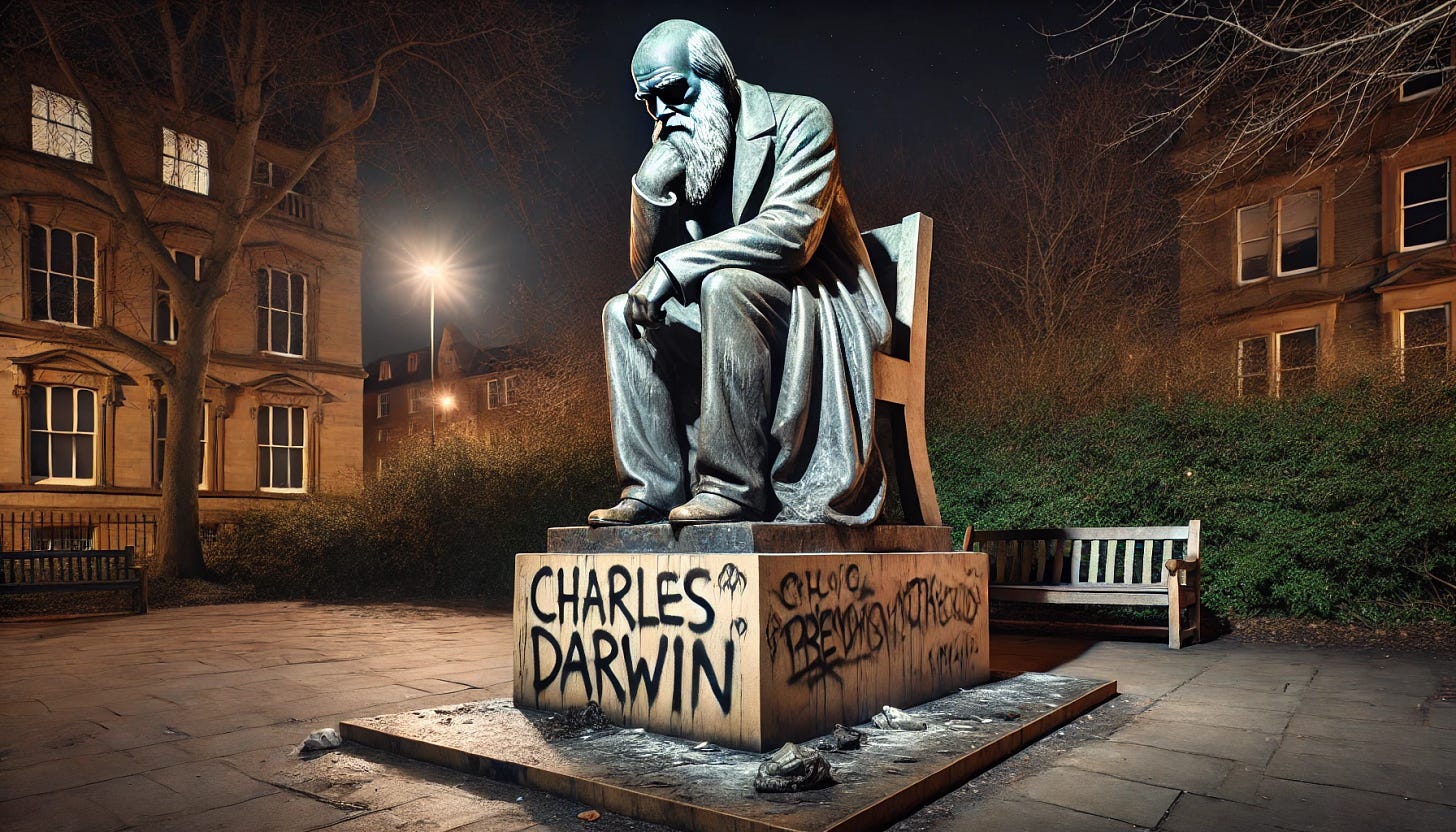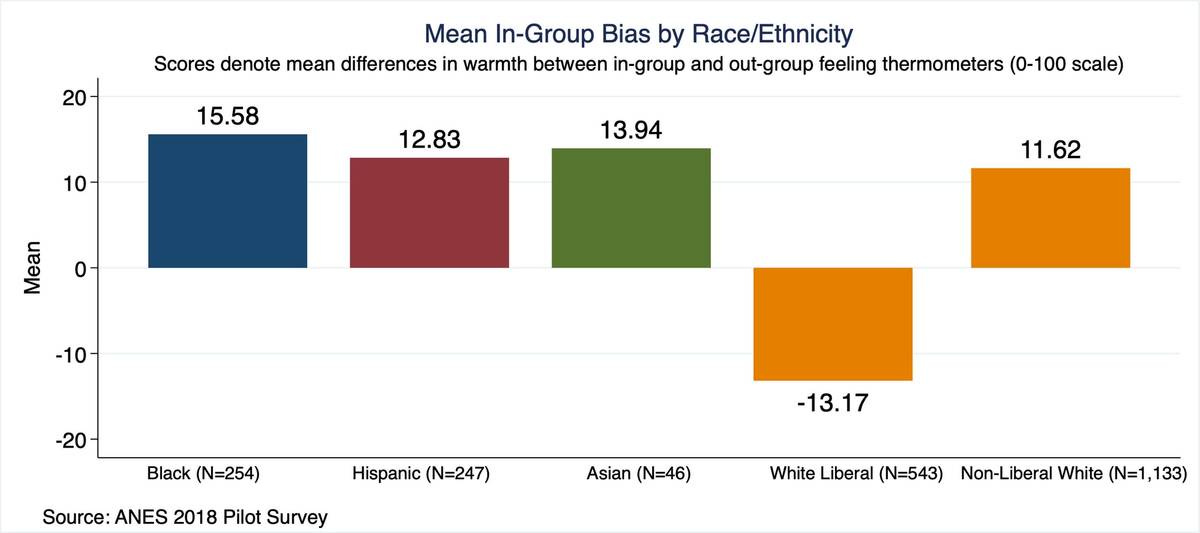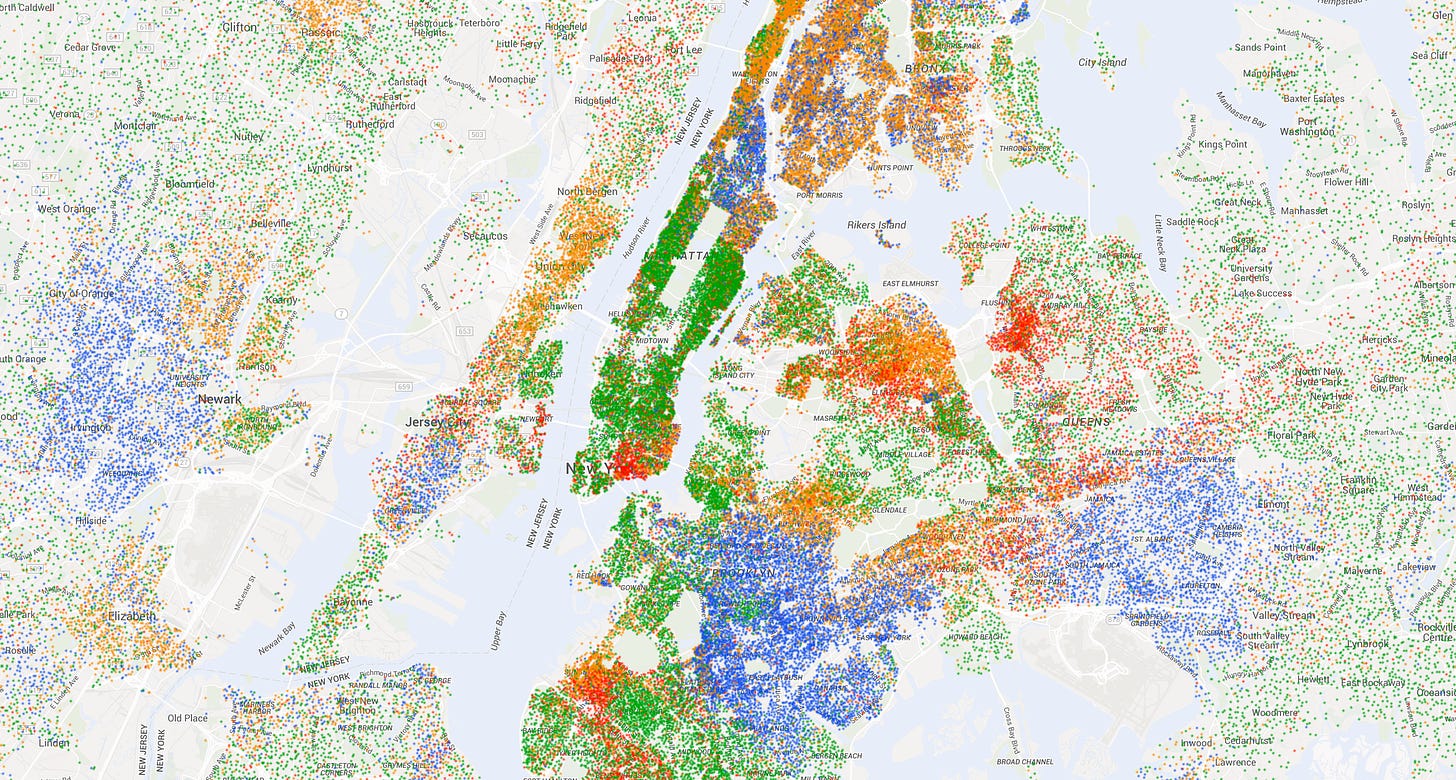Can you be "a" racist?
The question, “Is he a racist?” doesn’t really make sense. At the very least, it requires further clarification.
Written by Noah Carl.
In discussions surrounding (living or deceased) individuals who’ve been targeted for cancellation, the question often arises, “Is he a racist?” The presumption being that, if the answer is in the affirmative, the individual in question should indeed be cancelled – or at least suffer some penalty. Defenders of the accused will rush to point out that his views or actions have been mischaracterised, and the dreaded label does not apply to him. Meanwhile, detractors will try to show that the opposite is true.
But is there such a thing as “a” racist? There are certainly people who are very racist, such as Adolf Hitler, or skinheads that go around beating up black people. We can all agree that the label “racist” applies to them.
What about someone like Winston Churchill? On the one hand, he went to war against Nazism. And there can be few things less racist than waging war against the most racist movement in history. On the other hand, his Secretary of State, Leo Amery, was apparently “so appalled by his views that he compared him to Hitler”. Among Churchill’s more colourful remarks is the following:
I do not admit that the dog in the manger has the final right to the manger, though he may have lain there for a very long time I do not admit that right. I do not admit for instance that a great wrong has been done to the Red Indians of America or the black people of Australia. I do not admit that a wrong has been to those people by the fact that a stronger race, a higher-grade race or at any rate a more worldly-wise race, to put it that way, has come in and taken their place.
As someone who’s been accused of “racism” himself, I think it’s fair to say that comparing other races to “the dog in the manger”, and implying they are weaker and lower-grade does qualify as racism.
And then there’s Charles Darwin. He was a lifelong abolitionist from a family of abolitionists. Yet he said things like, “In 500 years how the Anglo-saxon race will have spread & exterminated whole nations; & in consequence how much the Human race, viewed as a unit, will have risen in rank.” Personally, I don’t think this qualifies as racism, since Darwin was merely describing what he saw, and wasn’t using ‘rank’ in a pejorative sense. Though others beg to differ.
However, even if one were to insist that both Churchill and Darwin were racists, they’re clearly not in the same category as Adolf Hitler. Holding the view that one race has a lower “rank” than another, as Darwin may have done, is in no way comparable to ordering the extermination of an entire group of people. It doesn’t make sense to say there’s this category called “racists”, and its occupied by men like Adolf Hitler and neo-Nazi skinheads, but also the abolitionist Charles Darwin.
One could also mention men like Thomas Jefferson, who was an actual slave-holder. Yet he lived in a time when slavery was widespread, and felt heavily conflicted about the practice (Jefferson supported gradual emancipation). Was he a racist? To the extent that he owned humans of another race, yes. But again, he doesn’t belong in the same category as Hitler.
What I’m getting at is that “racist” is not a binary attribute – something you are or you aren’t. It’s a continuous variable, running from Adolf Hitler at one end to a completely non-racist person at the other end – with men like Churchill, Darwin and Jefferson somewhere in between. So the question, “Is he a racist?” doesn’t really make sense. At the very least, it requires further clarification, like “Is he a racist in the Charles Darwin sense or the Adolf Hitler sense?”
Incidentally, this argument puts me at odds with some conservatives and other opponents of wokeness, who want to insist that men like Churchill and Jefferson definitely weren’t racist because, after all, they lived in a different time. While I agree that context matters, I don’t think you can say that men who owned slaves (at a time when there were abolitionists around) don’t qualify as racist just because they helped to build Western civilisation and a lived an arbitrary amount of time in the past.
To me, it makes more sense to say: these men were great, but they were somewhat racist – though not nearly as racist as Adolf Hitler. And just because they were somewhat racist, doesn’t mean we should take down statues of them, rename buildings named after them, or otherwise seek to destroy their legacy.
I think the reason some conservatives don’t want to concede that men like Churchill and Jefferson were racist is that, in recent years, racism has been transformed from something nasty or offensive into the ultimate sin – the worst possible thing you can be accused of. And conservatives don’t want to concede that their intellectual heroes are guilty of that.
Now, I’m certainly not saying that racism is a good thing. I’m merely pointing out that you can be somewhat racist, like Churchill, while still being commendable in many other respects. Not every racist is Adolf Hitler.
In fact, I’d go further than that. I’d say that most people (of all races) are at least slightly racist. Which further undermines the idea that there’s such a thing as “a” racist – that we can easily separate the good “non-racist” people from the bad “racist” people. Various kinds of evidence support this claim.
Psychologists have devised quantitative measures of ethnocentrism, and unsurprisingly, they don’t find a neat bimodal distribution comprising “racists” and “non-racists”. Ethnocentrism – like almost all psychological traits – varies continuously.
The fact that most people are somewhat ethnocentric can be seen in Zach Goldberg’s famous chart of in-group bias by race in the United States. Respondents were asked to say how favourable they are towards each race on a 0–100 scale, which allowed Goldberg to compute an in-group bias score for each individual. The bars below are simply the averages for respondents of different races, with whites broken down into liberals and non-liberals.
On average, members of each race have a moderate preference for their own race: blacks prefer blacks; Asians prefer Asians etc. The only exception are white liberals, who have moderate preference against their own race. They are ethnophobic, in other words (not perfectly neutral or non-racist).
The fact that most people are somewhat ethnocentric can also be seen in the chart below, created by L.J. Zigerell. It is based on roughly the same data as Goldberg’s chart, though presents the information in a slightly different way.
As you can see, whites have a very slight average preference for white people, but it is hardly discernible (remember this figure is the average over white liberals and other whites). However, Hispanics clearly prefer Hispanics (and like whites the least); blacks clearly prefer blacks (and like whites the least); and Asians clearly prefer Asians (and like whites the least).
Another famous chart showing surprisingly high levels of ethnocentrism is this one from the World Values Survey. Respondents around the world were asked who they would not want to have as neighbours, and countries were shaded in proportion to the percentage who said “people of another race”.
In many countries, more than 20% of respondents said they would not want to have “people of another race” as neighbours, with the most racist countries being in the Middle East and South East Asia, and the least racist countries being in the West. And these figures almost certainly overestimate true levels of “racial tolerance”, as many people would not openly admit on a survey that they are racist.
We know from studies of “revealed preference” – i.e., people’s actual behaviour – that residential segregation by race is the norm, not the exception. And while Thomas Schelling famously showed that even stark segregation can arise from relatively weak in-group preferences, it does require those preferences to begin with.
Consider this map of New York, where each dot represents 120 people of a particular race. Blue dots represent blacks; orange dots represent Hispanics; red dots represent Asians; and green dots represent whites.
There is almost total racial segregation. And while some of this can be explained by socio-economic differences (people opting to live next to those who are about as rich or educated as they are), it’s not as if there's zero overlap between the races on this score.
People spend huge amounts of time fretting over whether certain individuals are or are not “racist”. Yet there’s no such thing as “a” racist, unless ‘racist’ is taken to mean ‘someone who is racist to an arbitrary extent’ or ‘someone who is more racist than a certain percentage of the population’. Of course, I have no problem using the label when the individual in question is so racist that there can be no real dispute, as with Adolf Hitler or neo-Nazi skinheads.
This article was originally published behind a paywall on Noah’s Newsletter.
Noah Carl is Editor at Aporia.
Consider supporting Aporia with a paid subscription:
You can also follow us on Twitter.








Was Hitler a racist or an anti-semite? Was Churchill a racist or an elitist? Was Darwin a racist or a Darwinist?
The problem with the concept of racism is that it doesn't explain anything. It's mostly a term of abuse meant to punish and discipline anyone who dares to question the equality thesis.
This is probably why Noah decided to not even define the concept of racism, because there simply isn't an agreed definition (and that's on purpose). We would all be better off if we could retire the concept and stop obsessing over it so much.
I’m racist 👋🏻. Diversity sucks 👎🏻